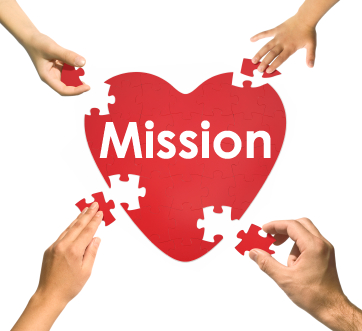Marketing is too important to be left to the marketing department.
-David Packard
Several years ago, I started my first day at a new temp job as a receptionist for a Japanese automotive company in Metro Detroit. The learning curve was huge - my work experience at that point was limited to child care, restaurants, a flower shop, and another two week temp job. This was my first "big girl" job, and I wanted to be great - even though I knew it was "temporary." I had to learn who worked in what department and what paperwork and phone calls went where.
But one thing was noticeably missing: a Marketing Department.
I brought this to my superior's attention, wondering out loud if the marketing was handled from the corporate office in Japan, when he said something that stuck with me: "There is no marketing department. Marketing is everyone's job."
Marketing is everyone's job.
After nearly a year working there, that is what stuck with me. It stuck with me when I left that job to take a job in a marketing department for an architecture firm. It stuck with me when I changed my college major to marketing. It stuck with me when I decided to start my own company and focused my business on marketing. It sticks with me today as I coach start-up businesses or help businesses in crisis - marketing isn't just the job of a single department - it is everyone's job.
There has been a lot of coverage across the internet (including this blog) about the importance of having the right business values and mission statements. One thing that seems to astound me is the lack of marketing goals company-wide in these statements. When a company builds this idea into the basis of their company, everyone owns it. When it's shown more than it is said, the company is successful.
In today's world, where buyers have made 60% of their decision prior to talking to a sales representative, businesses need to be more aware of how their company is perceived. If a potential client finds out about your company from a file clerk, you want their experience to be positive enough that they consider your company. When they Google you and come across the VP's LinkedIn page, you want them to feel the company. Your Twitter postings should fit the values, mission, and marketing plan. This idea is less about marketing to your customers, and more about building brand recognition through every employee.
How do we move forward?
Marketing departments are still necessary for developing and implementing the marketing plans for the success of the company. Web, print, social media, trade shows, networking - all of these are still vital for a company to succeed, but the voice of the company, the culture, the persona recognition - these should be owned by everyone.
How do you incorporate marketing in your company? Would you consider taking a holistic approach to marketing?
Be sure to leave your thoughts in the comment.
Nicole
The Restless Entrepreneur
















